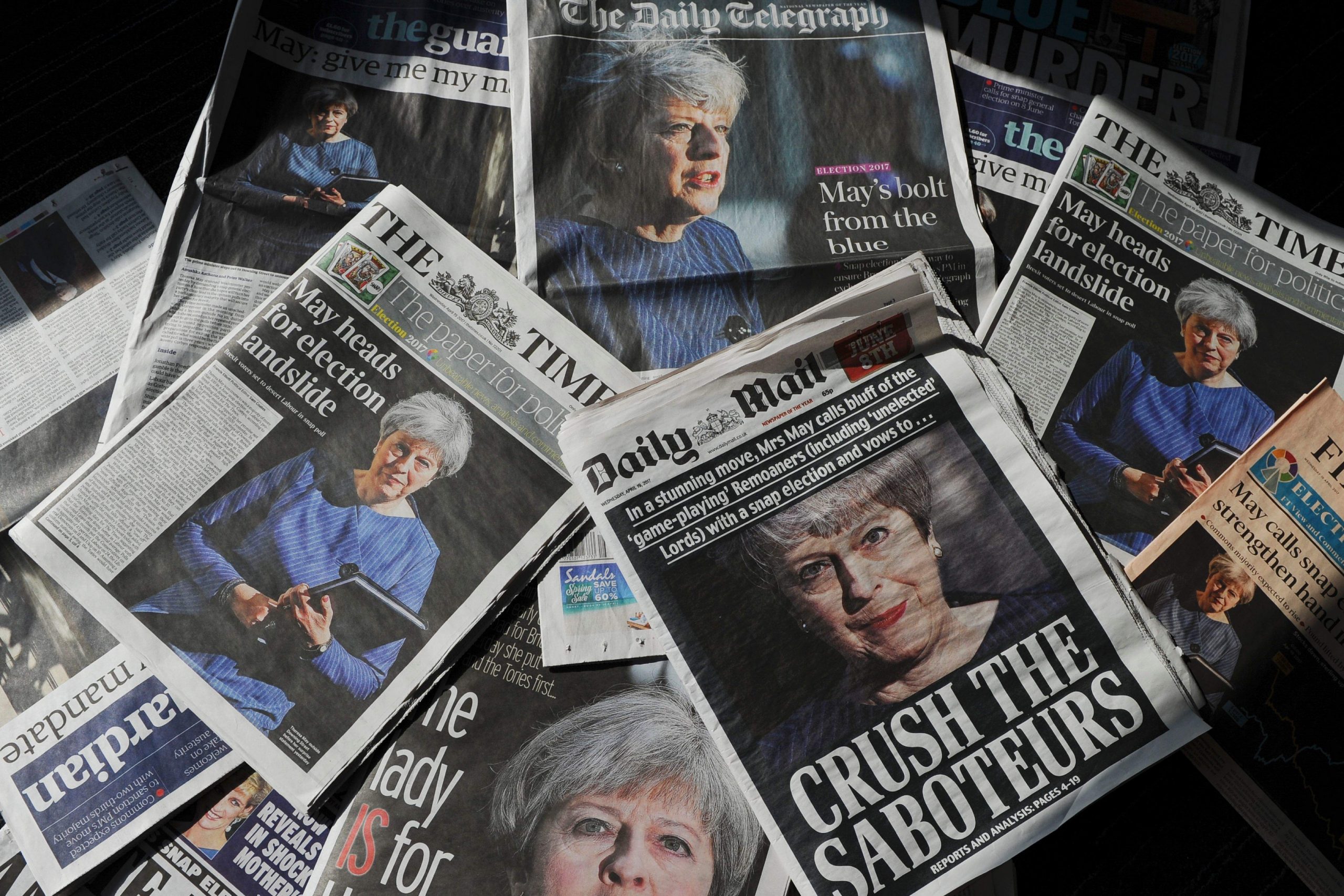
Despite their best efforts during the election campaign, the Sun, Daily Mail, Telegraph and Express failed to convince voters to give Theresa May a majority, let alone the landslide she craved. Instead, Labour made inroads thanks partly to increased turnout among younger voters who prefer to get their news online and from social networks.
The centre of power in the media has been shifting to the web for years, but during the election we saw just how well a crop of hyper-partisan left-wing news sites are using social media to gain the kind of influence once restricted to the tabloid press.
Writers for sites such as the Canary or Evolve Politics see themselves as activists as much as journalists. That frees them to spin news stories in a way that is highly attuned to the dynamics of social media, provoking strong emotions and allowing them to address their audience like a friend down the pub “telling it how it really is”.
People on Facebook or Twitter use news to tell their friends and the wider world who they are and what they believe in. Sharing the Canary story “Theresa May is trying to override parliamentary democracy to cling to power. But no one’s fooled” is a far more effective signal that you don’t like the Tory government than posting a dry headline about the cancellation of the 2018 Queen’s Speech.
This has long-term implications for the right’s ability to get its message out. Research by BuzzFeed has found that pro-Conservative stories were barely shared during the election campaign. It appears the “shy Tory” factor that skewed opinion polling in previous elections lives on, influencing what people are prepared to post online. If I were a young Tory looking forward to a long career, I’d be worried.
Distorted reality
Television was once the press’s greatest enemy. But its “newspaper reviews” now offer print titles a safe space in which they are treated with a level of respect out of all proportion to their shrinking readership. Surely this must change soon? After all, the Independent sometimes gets a slot (despite having ceased print publication last year) for its digital front page. How is it fair to exclude BuzzFeed News – an organisation that invests in reporting and investigations – and include the Daily Express, with its less-than-prescient weather predictions?
Another problem became apparent during the election. Because the press is so dominated by the right, coverage from the supposedly impartial broadcasters was skewed, as presenters and guests parroted headlines and front-page stories from partisan newspapers. Already, some political programmes, such as BBC1’s The Andrew Marr Show, have experimented with including news from outside Fleet Street. One of the newspaper industry’s most reliable allies is looking for new friends.
Alternative facts
The rise of sites spreading the left-wing gospel across Facebook may be good for Labour but that doesn’t mean it’s good for the public. This was illustrated on 16 June in a post by a relatively new entrant called the Skwawkbox, which claimed that a government “D-notice” – now called a DSMA-notice – might be in place restricting news organisations from reporting on the number of casualties from the Grenfell Tower fire.
The claim was untrue and eventually an update was added to the post, but not before it was widely shared. The man behind the blog (who gives his name in interviews only as “Steve”) insisted that because he had included a couple of caveats, including the word “if” in the text of his article, he was justified in spreading an unsubstantiated rumour. Replacing an irresponsible right-wing tabloid culture in print with equally negligent left-wing news sites online doesn’t feel much like progress.
Blood and bias
Narratives about the corrupt, lying mainstream media (the “MSM” for short) have become more prevalent during the election, and it’s clear they often hit a nerve.
On 17 June, a protest over Theresa May’s deal with the DUP and the Grenfell Tower fire made its way past BBC Broadcasting House, where a small group stopped to chant: “Blood, blood, blood on your hands!” Hours later, in the shadow of the burned-out tower, I heard a young woman complain loudly to her friends about money being used to fly BBC news helicopters when it could have gone to displaced victims.
The BBC cites the accusations of bias it receives from both ends of the political spectrum as evidence that it is resolutely centrist. But while many of its greatest critics would miss the BBC if it goes, the corporation could do a better job of convincing people why it’s worth keeping around.
Grenfell grievances
Early reports of the attack on a Muslim crowd in Finsbury Park on 19 June exhibited a predictably depressing double standard. The perpetrator was a “lone wolf”, and the Mail identified him as “clean-shaven”: phrases it is hard to imagine being used about an Islamist. Yet the media don’t just demonise Muslims in its reporting; they also marginalise them. Coverage of Grenfell contained plenty of references to the churches in this part of west London and its historic black community. Yet Muslims and the relief work carried out by local mosques received comparatively little coverage. Community issues such as Islam’s requirement that the dead are buried swiftly were largely ignored, even though a large number of those killed or made homeless by the fire were Muslim.
I suspect this may have something to do with outdated ideas of what north Kensington is like. But it also must reflect the reality that just 0.4 per cent of UK journalists are Muslim, according to a study by City University in London. The lack of diversity in the media isn’t just a moral issue; it’s one that affects our ability to tell the full story.
This article appears in the 21 Jun 2017 issue of the New Statesman, The zombie PM





